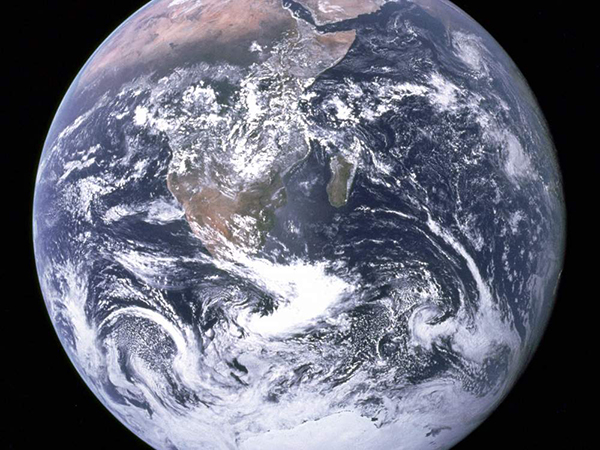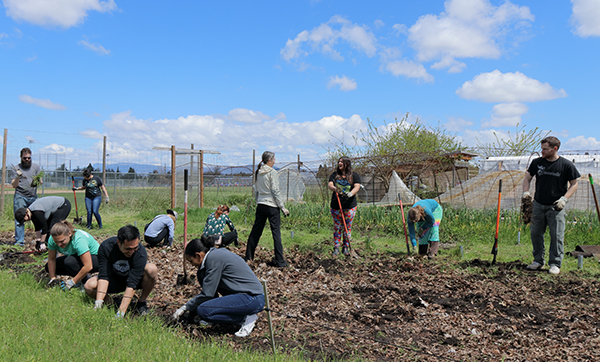Written by Mysti Frost, Ana Molina and Krystal Abrams
This year’s Earth Week celebration offered a twist on the usual flower plantings and electric car demonstrations through a focus on community health and environmental justice.

Photo of our home planet credited with inspiring the flowering of the environmental movement.
The first Earth Day celebration in 1970 represented a turning point for environmental awareness and advocacy. That special day followed the passage of the National Environmental Protection Act on Jan. 1, 1970, under the Nixon administration. National leaders were deeply influenced by the heightened public concern about environmental pollution spurred by Rachel Carson’s book “Silent Spring.” Their first steps toward environmental advocacy included the Clean Water Act and the Clean Air Act.
During the 1980s, communities of color came together to fight for their right not to be routinely targeted with environmental pollution and destruction. African American, Native American and Latino people began to challenge how institutional racism forced their communities to endure hazardous waste dumps, chemical factories, coal-fired power plants and pesticide-laden work sites.
The environmental justice movement exposed the truth: Those who live and work in our country’s most polluted environments are overwhelmingly low-income families and people of color.
Oregon is not immune to these unjust patterns. Think of the polluting chemical weapons incinerator built on tribal lands of the Confederated Tribes of the Umatilla along the Columbia River, or the way Oregon’s large agricultural businesses expect to spray highly toxic pesticides right up to the doors of farm worker cabins with impunity.
By the 1990s, the environmental justice movement was on track to gather allies and influence the way our country understands how racism intersects with environmental policy and social values. In 2000, Beyond Toxics was founded to carry on this work in Oregon, to advocate and support communities whose health and well-being are robbed from them by patterns of environmental racism. Beyond Toxics sees environmental protection and environmental justice as the same goal.

Krystal Abrams (R; shovel in hand) leads a team of volunteers in creating a pollinator-friendly garden in Huerto de la Familia's garden in West Eugene. Photo by Ephraim Payne (April 21, 2018)
We share one Earth. This is our common ground. As we celebrate Earth Day this year and around the world, let’s show our respect for the Earth and not forget about many of the vulnerable communities who are forced to bear the disproportionate burden of environmental hazards.
Mysti Frost, Environmental Justice Community Organizer
Ana Molina, Environmental Justice Campaign Liaison
Krystal Abrams, Social Media & Pollinator Projects Manager







